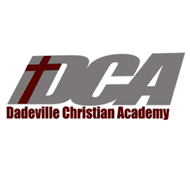Alabama HS Laws
In Alabama, there are three options under which you can legally homeschool. Note that church schools and private schools can establish their own policies for teacher qualification, days of instruction, and required school subjects.
Here are the options:
Option 1: Homeschooling with a church school
Option 2: Homeschooling with a private school
Option 3: Homeschooling using a private tutor
Option 1: Homeschooling with a church school
A church school offers instruction in grades K–12 or any combination thereof, including preschool, through onsite or home programs, and is operated as a ministry of a local church, group of churches, denomination, and/or association of churches that does not receive any state or federal funding. A home may be the location where a child receives instruction as a student attending a church school.
To homeschool under this option, you must take the following steps:
Enroll your child in a church school.
When your child is first enrolled in a church school, you must notify the superintendent of your local public school by filing a church school enrollment form. The church school administrator may assist you in obtaining this form. This form must be signed by a parent or legal guardian and by the church school administrator. There is no requirement to file annually.
Keep an attendance register.
The principal teacher of the church school must keep an attendance register for every school day of the year.
Comply with any policies established by the church school.
Some church schools have policies regarding teacher qualification, number of days of instruction, and required subjects. If so, you are responsible to comply with them.
For more info, you can contact the HSLDA
Alabama Code Title 16. Education § 16-28-7
At the end of the fifth day from the opening of the public school, the principal teacher of each public school, private school, and each private tutor, but not church school, shall report on forms prescribed by the State Superintendent of Education to the county superintendent of education, in the event the school is operated in territory under the control and supervision of the county board of education, or to the city superintendent of schools, in the event the school is operated in territory under the control and supervision of a city board of education, the names and addresses of all children of mandatory school attendance age who have enrolled in such schools; and thereafter, throughout the compulsory attendance period, the principal teacher of each school and private tutor shall report at least weekly the names and addresses of all children of mandatory school attendance age who enroll in the school or who, having enrolled, were absent without being excused, or whose absence was not satisfactorily explained by the parent, guardian, or other person having control of the child. The enrollment and attendance of a child in a church school shall be filed with the local public school superintendent by the parent, guardian, or other person in charge or control of the child on a form provided by the superintendent or his or her agent which shall be countersigned by the administrator of the church school and returned to the public school superintendent by the parent. Should the child cease attendance at a church school, the parent, guardian, or other person in charge or control of the child shall by prior consent at the time of enrollment direct the church school to notify the local public school superintendent or his or her agent that the child no longer is in attendance at a church school. This section may not be interpreted or construed as authorizing the Department of Education, the State Board of Education, or the State Superintendent of Education to license or regulate any private, nonpublic, or church school offering instruction in grades K-12, or any combination thereof.
Cite this article: FindLaw.com – Alabama Code Title 16. Education § 16-28-7 – last updated January 01, 2019 | https://codes.findlaw.com/al/title-16-education/al-code-sect-16-28-7.html
